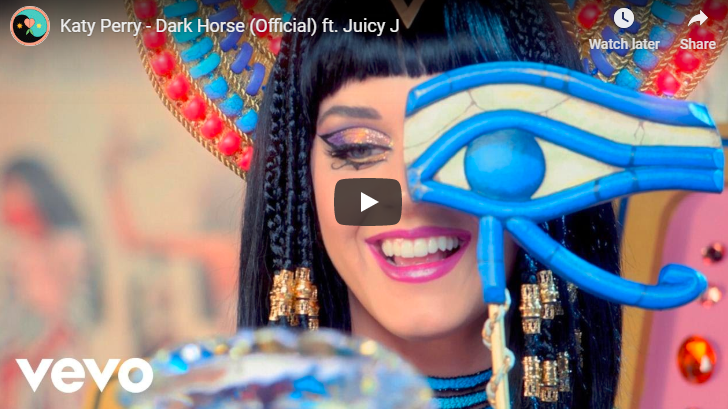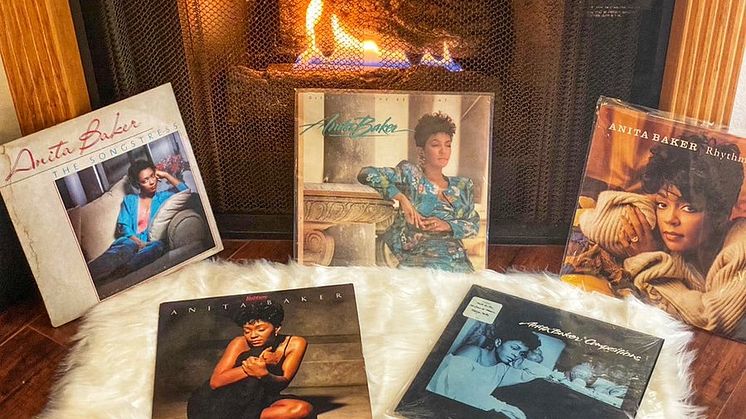
News -
Katy Perry ruled to have copied song from Christian rapper
Pop singer Katy Perry's 2013 single "Dark Horse" has been found by a federal court to have infringed on the copyright of a song by a Christian rapper.
Marcus Gray, who records under the name Flame, alleged Perry's song had too many similarities to his 2009 song, "Joyful Noise". He said Perry and her co-writers took his song's hook.
Gray also claimed that his reputation as a Christian artist had been affected by the “anti-Christian witchcraft, paganism, black magic, and Illuminati imagery in the music video for 'Dark Horse'."
He filed a lawsuit against Perry in 2014.
You can listen to Katy Perry's "Dark Horse" here and Flame's "Joyful Noise" here.
Perry’s defence argued that the similarities between the two songs are basic musical patterns that are not entitled to copyright protection.
"They're trying to own basic building blocks of music, the alphabet of music that should be available to everyone," Perry's lawyer Christine Lepera said during her closing argument in court.
The next phase of the trial will determine the damages Perry will have to pay Gray.
The ruling for this case has similarities to the verdict of a 2015 case in which singers Robin Thicke and Pharrell Williams were ordered to pay the estate of Marvin Gaye US$5 million for infringing on the copyright of Gaye's song "Got To Give It Up" with their song "Blurred Lines." It was a controversial judgment as the two songs do not sound that similar - over 200 famous musicians thought so, too, as they signed a petition following the verdict to appeal against it.
The petition said: "We are concerned about the potential adverse impact on their own creativity, on the creativity of future artists, and on the music industry in general, if the judgment in this case is allowed to stand. The verdict in this case threatens to punish songwriters for creating new music that is inspired by prior works."
Thicke and Williams had previously admitted that they were inspired by Gaye's song, but sought to evoke the 'feel' of it, and not blatantly copy it.
Even a judge in the case, Jacqueline Nguyen, argued that the songs differed in "melody, harmony and rhythm" and said the verdict "strikes a devastating blow to future musicians and composers everywhere."
Another lawsuit that is being closely watched is the lawsuit against Led Zeppelin for supposedly stealing the opening to their famous song, "Stairway To Heaven." The outcome of this lawsuit is potentially so important that the judge for another lawsuit has postponed hearing it so he can wait for the resolution of Led Zeppelin's case.
The other lawsuit has musician Ed Sheeran being accused by the estate of songwriter Ed Townsend of copying from Marvin Gaye’s 1973 “Let’s Get It On,” which Townsend co-wrote. Sheeran's case is not helped by the fact that he once seamlessly transitioned between his song, "Thinking Out Loud", and "Let's Get It On", during a concert.
These cases are very subjective and highlight a grey area in copyright in the music industry – at what point does a musician transform a 'building block of music' into his own intellectual property? It seems this is a question that is still puzzling everyone.
Related links
- Katy Perry copied Dark Horse from Christian rapper Flame, court rules
- Katy Perry – Dark Horse
- Flame – Joyful Noise
- Head-Scratching Continues Following the Katy Perry Verdict — Does the Music Business Have a Copyright Trolling Problem?
- Robin Thicke and Pharrell Williams to pay $5m in final Blurred Lines verdict
- Over 200 musicians sign petition backing Pharrell & Robin Thicke in 'Blurred Lines' appeal

